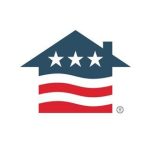Your cash reserves are important to the homebuying journey as lenders want to make sure you have a stable, reliable income that’s likely to continue.
Generally, there’s no minimum dollar amount you need in the bank to start the VA homebuying process. But VA lenders want to make sure you can financially handle the new mortgage payment and the costs of closing on the loan.
Do VA Loans Require Cash Reserves?
In some cases, you may need to meet a cash reserves requirement to satisfy lenders. A solid stockpile of documented funds can also serve as a compensating factor to help buyers overcome other potential deficits or issues with their loan file. Policies and guidelines will vary by lender, loan type and other factors.
Lenders typically think of reserves in the context of your monthly mortgage payment. You may need to have a certain number of months’ worth of mortgage payments in the bank, including the principal, interest, property taxes, homeowners insurance (and homeowners association dues when applicable).
Here’s a look at a few situations that might require prospective VA buyers to have reserves on hand.
Reserves for Jumbo VA Loans
VA buyers seeking a jumbo loan may need to meet reserve requirements. A jumbo loan is a loan above the current conforming loan limit in place throughout most of the country.
Cash reserve policies for VA jumbo loans can vary by lender and other factors. Generally, Veterans United does not typically require cash reserves for jumbo VA loans. But this can be a need when the borrower owns other properties. Talk with a Veterans United VA Loan Expert for more details.
Can Gift Funds be Used for Cash Reserves on a VA Loan?
Reserves must be in the borrower’s name and can’t be a gift. But VA lenders may be willing to count a percentage of your retirement account as reserves.
Veterans United currently counts up to 60 percent of the vested balance, provided the borrower can access the funds before their actual retirement. Some pension plans are only accessible once the person retires or quits their job.
Using Rental Income
Buyers looking to purchase a multiunit property with a VA loan and count projected rental income toward loan qualification will typically need to have a two-year tax history as a landlord. Many times they’ll also need cash reserves.
In these situations, Veterans United currently requires six months’ worth of mortgage payments in cash reserves.
The same is typically true for buyers who want to count income from an existing rental property they never occupied. You’ll often need cash reserves and be able to document a two-year history of receiving rental income. We currently require three months’ reserves in these cases.
Borrowers may also need cash reserves if they’re more than 12 months removed from converting a primary residence into a rental property.
Talk with lenders about their policies and guidelines.
Compensating Factors
Borrowers may be able to strengthen their loan file with compensating factors. These can vary by lender, loan type and other factors, but they’re generally positive attributes that can help convince underwriters you’re a safe bet.
For example, lenders may be willing to extend their cap on debt-to-income ratio for borrowers with one or more compensating factors.
At Veterans United, we currently consider having four months’ of reserves after closing as a compensating factor. Borrowers may be able to count regular debt payments to supplement any shortfalls.
For example, a borrower with a $1,000 monthly mortgage payment would need $4,000 in reserves to qualify for a compensating factor. But if information from the credit bureaus shows the borrower makes $1,000 per month in debt payments, they can proceed with just $3,000 in reserves.
Additional payments can be considered as a compensating factor provided they occurred within the previous 120 days.
Talk with a Veterans United VA Loan Expert at 855-259-6455 for more details.
Related Posts
-
 What is the VA Seller Concession Rule?Seller concessions with a VA home loan can save Veteran homebuyers thousands of dollars, but cannot exceed 4% of the loan.
What is the VA Seller Concession Rule?Seller concessions with a VA home loan can save Veteran homebuyers thousands of dollars, but cannot exceed 4% of the loan. -
 VA Loan Discount PointsPurchasing discount points on a VA loan can be a good investment for Veterans looking to lower their interest rate.
VA Loan Discount PointsPurchasing discount points on a VA loan can be a good investment for Veterans looking to lower their interest rate.

